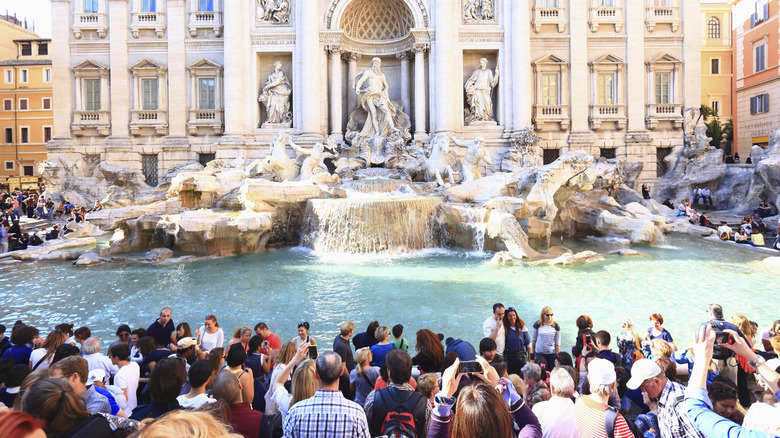Italy's New Law Could Change How Tourists Leave Reviews
It's common practice while planning a trip to seek out online reviews for restaurants, attractions, and hotels, which — in theory — offer genuine insight from both locals and other travelers. However, some establishments in Italy have been accused of paying for fake reviews in order to boost their tourism revenue, a practice that has beset some of the other businesses that rely on honest feedback. To counter paid reviews, the Italian parliament is now considering a new law that requires reviewers to provide something they previously didn't need: proof.
Italy's government unveiled a plan in January that would put in place online obstacles that aim to filter out fakes. Under the draft law, potential reviewers would be required to share their identification, have it verified, and present evidence they visited the place they're looking to review. It establishes other parameters around reviews, including that visitors must write and post them within two weeks of their visit.
Michele Carrus, the chairman of Federconsumatori — a nonprofit that protects consumers in Italy from fraud — told Reuters his group was supportive of the draft law, which will be debated in parliament. "Fake reviews are a problem for fair competition between companies because they can have a big impact on sales, and are also a problem for consumers who can be misled," Carrus said. "The problem needed to be addressed."
Fake reviews hurt Italy's tourism economy
According to Italy's ministry of enterprises, manipulated reviews affect an estimated 6% to 30% of revenue for businesses in the country's hospitality and tourism sector, The Guardian reported. Roberto Calugi, general director of the business federation Fipe-Confcommercio, told the newspaper that fake reviews were like a "plague" that created damage to the economy and sowed distrust among consumers. "It is no longer tolerable that business activities suffer the consequences of fraudulent and untruthful judgments, which often translate into unfair competition and hidden advertising," Calugi said.
It was uncertain at the end of January how the law could affect social media influencers, who are sometimes paid by hotels, restaurants, or destination management organizations to visit places and post positive content about their experiences. Assoutenti, an association of nonprofit groups in Italy, wrote in a statement to CNN that the proposed law should extent to social media websites too, rather than applying only to official review sites. "It is necessary to regulate the sphere of social networks more effectively, where a myriad of influencers and micro-influencers review restaurants, clubs, spas and accommodation facilities every day through contents that appear to be personal and disinterested opinions, but which in reality are the result of commercial agreements or grants of gifts that are not always clearly communicated to the public."
A surge in businesses inflating their ratings online — in Italy and other countries — prompted travel expert Rick Steves to warn travelers to think twice before trusting travel review sites for accurate information. While reviews can sometimes be helpful, their reliability is questionable. With this in mind, you might want to avoid trusting Tripadvisor reviews, where negative feedback tends to be amplified. Instead, Steves recommends reading online reviews only as a complement to getting factual information from updated guidebooks.

